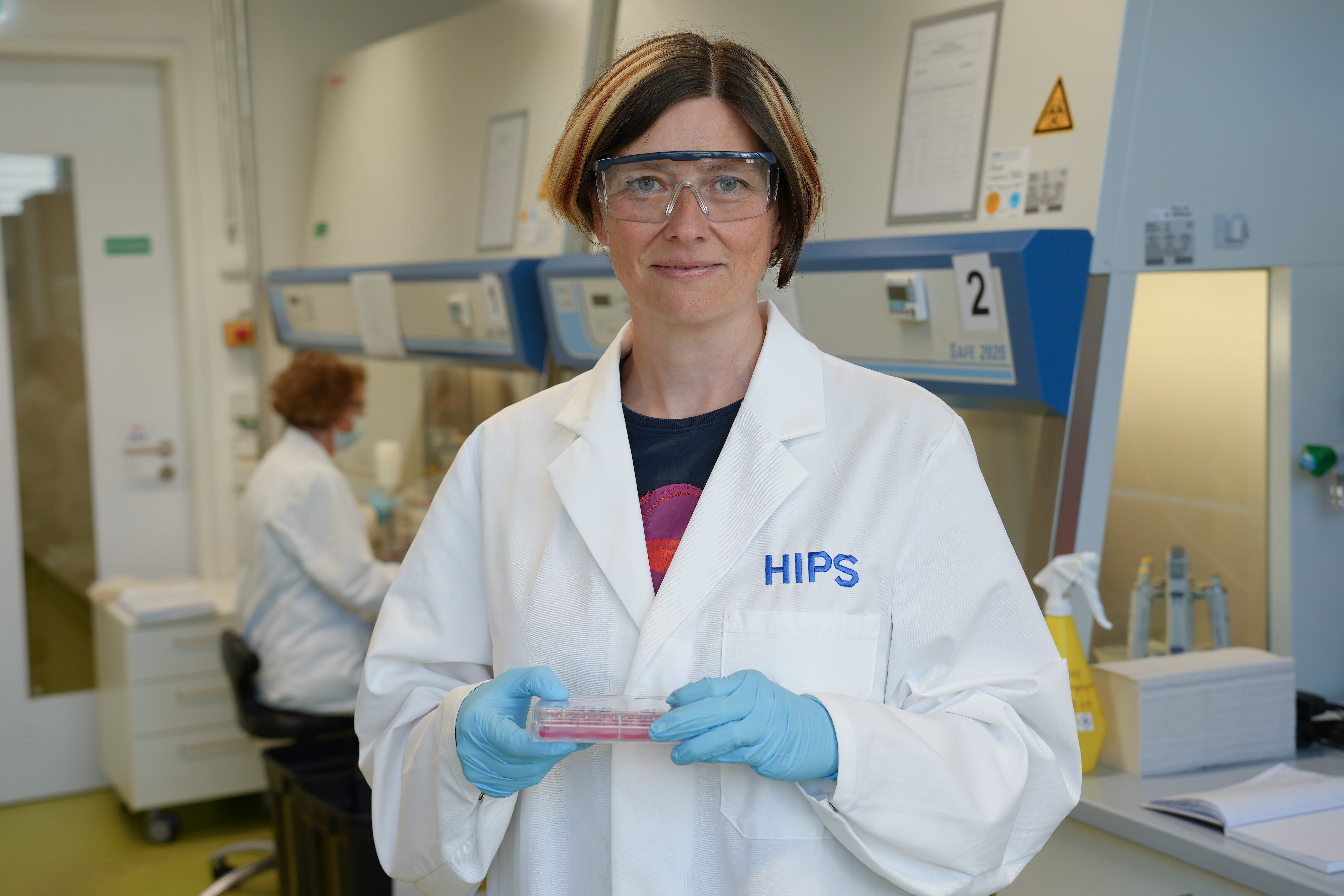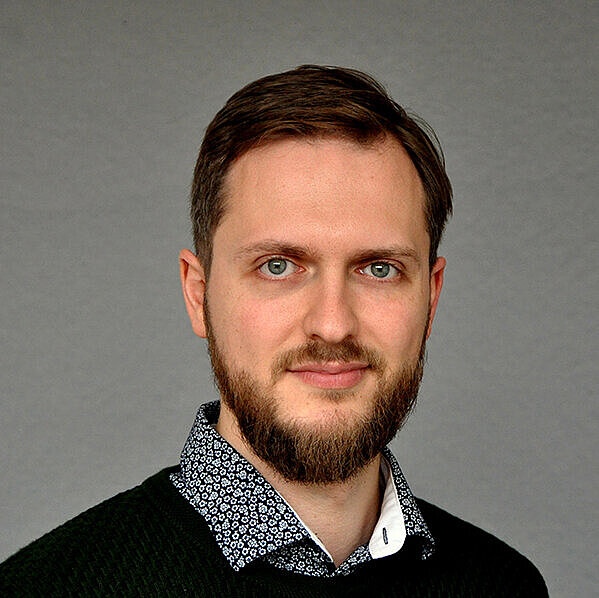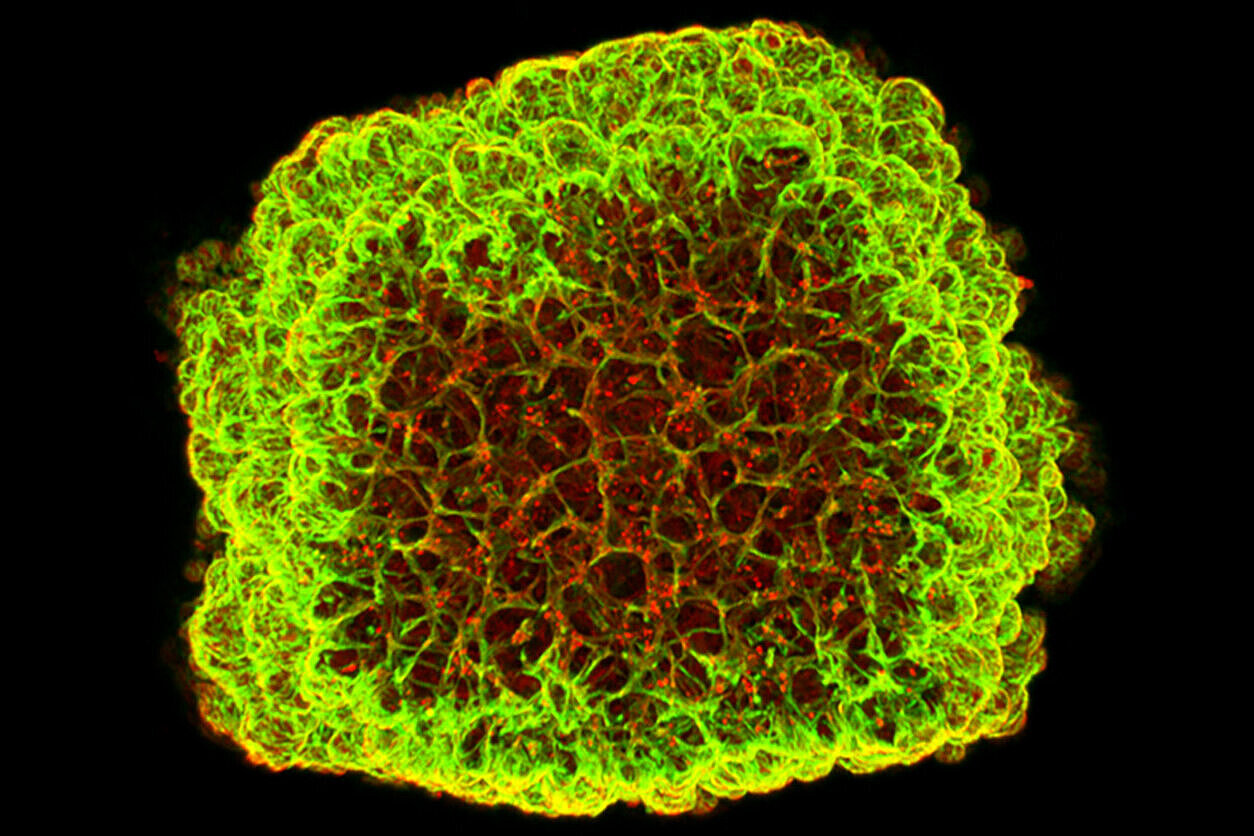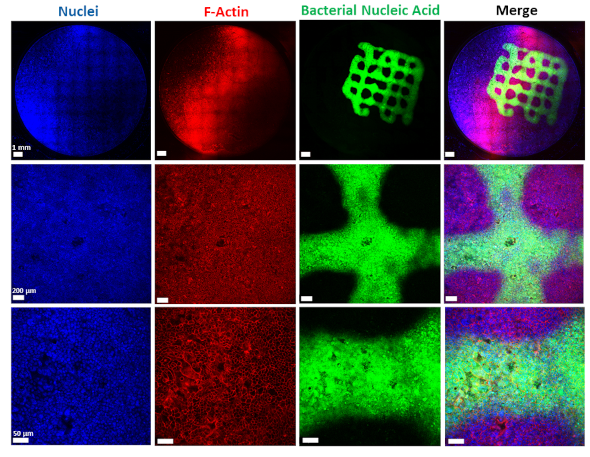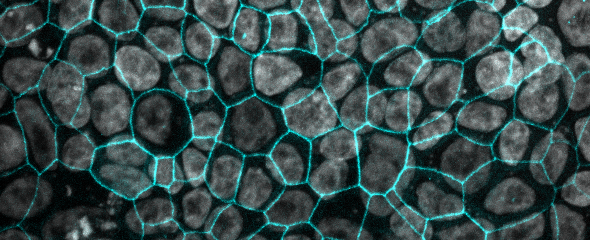The lung is a highly complex organ made up of over 50 different cell types. In the alveoli, a single layer of cells forms the barrier through which the exchange of oxygen and CO2 between the lungs and the bloodstream takes place. This barrier, also known as the blood-air barrier, must also be overcome by the corresponding active ingredients when inhaled medication is administered so that they can exert their desired effect. The more precisely researchers understand the interaction of active ingredients with this critical entry barrier into the body, the better they can adapt active ingredients and formulations so that they are absorbed through the lungs or take effect in the lungs.
At the Helmholtz Institute for Pharmaceutical Research Saarland (HIPS), a site of the Helmholtz Centre for Infection Research (HZI) in collaboration with Saarland University, scientists are researching new anti-infective agents using a wide variety of approaches. The main focus here is on the growing threat of antimicrobial resistance to the antibiotics currently in use. This problem is also playing an increasingly important role in the treatment of respiratory diseases. In the case of lung infections, this is aggravated by the fact that the disease-causing bacteria often grow in a layer of thick mucus in the lungs. In this so-called biofilm, the pathogens are protected from the cells of the immune system as well as from some active substances and can multiply unhindered. This special scenario plays an extremely important role in the development of new active substances, but is difficult to simulate in the laboratory. Until now, researchers have therefore had to rely mainly on animal models to test and characterize such drugs.
In order to reduce the number of animal experiments required and to be able to investigate the behavior of drug candidates in the lungs even during a relatively early stage of development, a HIPS research team led by Dr Nicole Schneider-Daum and department head Prof. Claus-Michael Lehr has developed test systems that allow this. One of the systems is based on the "Arlo" cell line established specifically for this purpose. These are human lung cells that have been genetically reprogrammed so that they can be multiplied as often as required in the laboratory and are therefore available for testing in almost unlimited numbers and with consistent quality. In order to mimic the complex networking of cells in the lungs, the researchers use a cultivation method on permeable filter membranes in which the cells grow at the air-liquid interface. Administered test substances hit the cell layer from above as aerosols and the transfer of molecules from the air through the modeled barrier can be measured.
In order to be able to model a lung infection in the laboratory, Schneider-Daum and her colleagues have also printed bacterial biofilms on lung epithelial cells using 3D bioprinting technology. These "in vitro patients" are suitable for evaluating the efficacy of new inhalable drugs at an early stage.
In future, these lung models should not only facilitate the development of active ingredients, but also reduce and ideally even replace the animal experiments used to date in line with the 3R principle (Refine, Reduce, Replace).
For this milestone, the complex cell culture models of the human lung were awarded the Saarland Research Prize "Alternatives to Animal Testing" in April 2024. Dr Nicole Schneider-Daum received 6,000 € of the 10,000 € prize for the continuation of the project.
